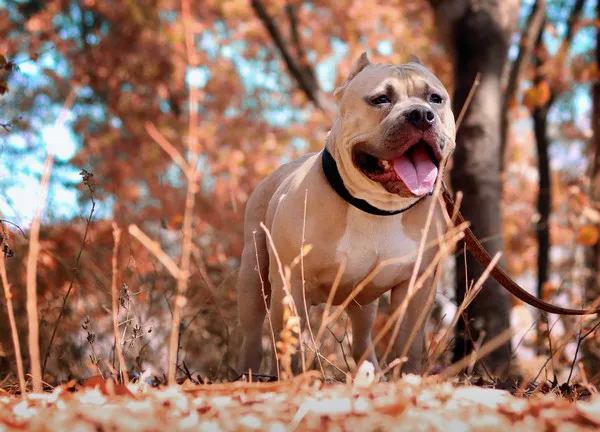The relationship between veterinarians and Shar Peis can be complex. These unique dogs present a range of challenges that can make veterinary care more difficult and stressful for both the pet and the vet. This article delves into the multifaceted reasons behind the strain in this relationship, from breed-specific characteristics to common health issues, and provides actionable advice for owners to improve the veterinary experience.
Breed Characteristics:
Shar Peis are easily recognizable due to their distinctive wrinkled skin, a hallmark of the breed. These wrinkles, while endearing, can pose significant challenges in a veterinary setting. The folds of skin can harbor bacteria and parasites, making them prone to infections that are difficult to treat. Moreover, the breed’s short, bristly coat can be a source of skin irritation and hypersensitivity, leading to additional skin problems.
Behaviorally, Shar Peis are known for their strong-willed and independent nature. Originally bred as guard dogs and hunters, they can be wary of strangers, including veterinarians. This wariness can manifest as aggression or extreme anxiety during vet visits, making handling and examination difficult. Their stoic demeanor can also mask pain, leading to underreporting of symptoms and delayed diagnoses.
Health Concerns:
Shar Peis are prone to a variety of health issues, many of which necessitate frequent and sometimes complex veterinary visits. Some of the most common health problems include:
Skin Conditions: The breed’s iconic wrinkles are a double-edged sword, making them susceptible to pyoderma (skin infections), demodectic mange, and yeast infections. Regular cleaning and maintenance are essential but can be cumbersome for owners.
Hip Dysplasia: This genetic condition, common in many larger breeds, causes pain and mobility issues. Managing hip dysplasia often requires a combination of medication, physical therapy, and in severe cases, surgery.
Entropion: A condition where the eyelids roll inward, causing the eyelashes to scratch the cornea. This can lead to severe pain and, if untreated, blindness. Surgical correction is often necessary.
Respiratory Issues: Due to their brachycephalic (short-nosed) structure, Shar Peis can suffer from breathing difficulties, particularly in hot or humid weather. This makes anesthesia riskier and requires careful monitoring during procedures.
Shar Pei Fever: A hereditary condition causing periodic fevers, joint swelling, and inflammation. Over time, it can lead to amyloidosis, a potentially fatal condition where protein builds up in the organs.
Hypothyroidism: This endocrine disorder can lead to weight gain, lethargy, and skin problems. It requires lifelong medication and regular blood tests to manage.
Veterinary Challenges:
Given the array of health issues Shar Peis face, veterinarians encounter several specific challenges when treating them:
Wrinkled Skin: The skin folds that define the breed also make it difficult to detect and treat infections. Vets must be diligent in examining these areas, which can be time-consuming and stressful for the dog.
Aggression and Anxiety: Shar Peis’ natural wariness of strangers, combined with their protective instincts, can lead to aggressive behavior in a clinical setting. This makes routine exams, vaccinations, and treatments more challenging and potentially dangerous.
Stoicism: Their tendency to hide pain can result in underdiagnosis of serious conditions. Vets need to rely more on diagnostic tests rather than behavioral symptoms, which can complicate and prolong the diagnostic process.
Anesthesia Risks: Due to their brachycephalic anatomy, Shar Peis are at a higher risk during procedures requiring sedation or anesthesia. Vets must take extra precautions, which can complicate surgical and dental procedures.
Misconceptions vs Reality:
Several myths about Shar Peis contribute to misunderstandings between pet owners and veterinarians. Addressing these misconceptions with factual information is crucial:
See Also: How Much Does a Chinese Shar Pei Cost?
Myth: Shar Peis are inherently aggressive.
Reality: While they can be protective and wary of strangers, proper socialization and training can mitigate aggressive tendencies. Their behavior often reflects their upbringing and environment rather than an inherent trait.
Myth: Wrinkles are just a cosmetic feature.
Reality: The wrinkles require diligent care to prevent infections. Neglecting this aspect can lead to severe health problems that require veterinary intervention.
Myth: Shar Peis don’t need much exercise.
Reality: Like all dogs, Shar Peis benefit from regular physical activity. While they may not be as high-energy as some breeds, lack of exercise can contribute to obesity and related health issues.
Improving Vet Visits:
Shar Pei owners can take several steps to ensure a more positive veterinary experience:
Early Socialization: Introduce puppies to different people, environments, and gentle handling early on. Positive experiences with different stimuli can reduce anxiety and aggression in adulthood.
Regular Grooming: Keep the skin folds clean and dry to prevent infections. Regular grooming can also help the dog become accustomed to being handled, making vet visits less stressful.
Frequent Vet Visits: Regular check-ups can help catch health issues early and allow the dog to become more comfortable with the veterinary environment. Short, frequent visits for simple things like weigh-ins or treats can build positive associations.
Positive Reinforcement: Rewarding calm behavior during vet visits with treats or praise can reinforce a positive experience.
Desensitization Training: Gradually accustom the dog to being touched and examined. Start with short sessions at home and slowly increase the duration and invasiveness of the handling.
Professional Training: Consider professional help for training and behavior modification, especially if the dog shows signs of severe anxiety or aggression.
Owner Responsibilities:
Owners of Shar Peis have a crucial role in maintaining their dog’s health and well-being. Key responsibilities include:
See Also:Is There a Mini Shar Pei?
Consistent Socialization and Training: Regularly expose the dog to new environments, people, and animals to build confidence and reduce anxiety. Positive reinforcement training can address and mitigate undesirable behaviors.
Routine Health Checks: Regular vet visits are essential for early detection and management of health issues. This includes routine blood tests, skin checks, and monitoring for signs of common conditions like entropion or hypothyroidism.
Proper Grooming: Maintain a regular grooming schedule to keep the skin folds clean and dry. Use vet-recommended products to manage skin conditions and consult the vet if any issues arise.
Diet and Exercise: Provide a balanced diet and ensure the dog gets regular exercise to prevent obesity and related health problems. Consult the vet for dietary recommendations specific to the breed’s needs.
Emergency Preparedness: Be aware of the signs of common Shar Pei health issues and know when to seek emergency veterinary care. This includes recognizing symptoms of Shar Pei Fever, respiratory distress, and severe skin infections.
Education and Awareness: Stay informed about the breed’s specific needs and challenges. Join breed-specific groups or forums to share experiences and learn from other Shar Pei owners.
Conclusion
While Shar Peis present unique challenges in veterinary care, understanding their specific needs and taking proactive steps can lead to a healthier and happier life for these distinctive dogs. By dispelling myths, addressing health concerns, and preparing for vet visits, owners can build a positive relationship with their veterinarians and ensure their Shar Peis receive the best possible care. Veterinarians, on the other hand, can provide more effective treatment by understanding the breed’s characteristics and working closely with informed and diligent owners.
Related Topics:






















